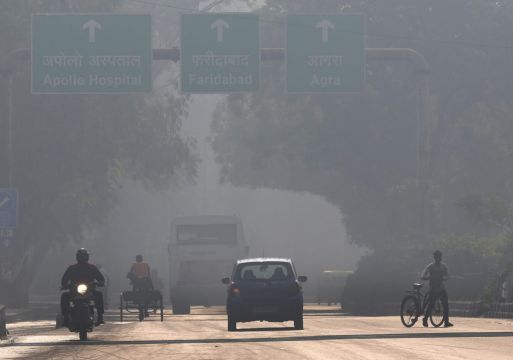Schools were closed indefinitely and some coal-based power plants shut down as the smog-shrouded Indian capital and neighbouring states invoked harsh measures on Wednesday to combat worsening air pollution after an order from the federal environment ministry.
The measures come as India’s top court is deliberating whether New Delhi should go into a lockdown as a blanket of thick, grey smog continued to surround the city, particularly in the mornings.
The panel issued the guidelines on Tuesday night to stem the pollution and to show residents that the government was taking action to control an environmental crisis that has been plaguing the capital for years.
Besides the closure of schools, the Commission for Air Quality Management ordered a stop to construction activities until November 21 and banned trucks carrying non-essential goods.
The panel also directed the states to “encourage” work from home for half of the employees in all private offices.

Despite some improvement in New Delhi air over the past two days, readings of dangerous particles on Wednesday were still as high as seven times the safe level, climbing above 300 micrograms per cubic meter in some parts of the city.
The World Health Organisation designates the safe level for the tiny, poisonous particles at 25.
Forecasters warned air quality would worsen before the arrival of cold winds next week that will blow away the smog.
Earlier this month, air quality levels fell to the “severe” category in the capital and residents faced bouts of severe, multiday pollution.
It prompted a stern warning last week from India’s Supreme Court, which ordered state and federal governments to take “imminent and emergency” measures to tackle what it called a crisis.
The crisis deepens particularly in the winter when the burning of crop residues in neighbouring states coincides with cooler temperatures that trap deadly smoke. That smoke travels to New Delhi, leading to a surge in pollution in the city of more than 20 million people.
Emissions from industries with no pollution control technology, pollutants from firecrackers linked to festivals, and construction dust also sharply increase in winter months.
Several studies have estimated that more than a million Indians die every year because of air pollution-related diseases.
The capital has often experimented with limiting the number of cars on the road to lower vehicular emissions, using large anti-smog guns and halting construction activity. But the steps have had little effect.
Experts say such emergency measures are not helpful in the long run.
“These are done only to ensure that you don’t worsen the situation, that you shave off the peak. But it is not a silver bullet that is going to just clean the air immediately,” said Anumita Roychowdhury, executive director at the Centre for Science and Environment, a research and advocacy organisation in New Delhi.







